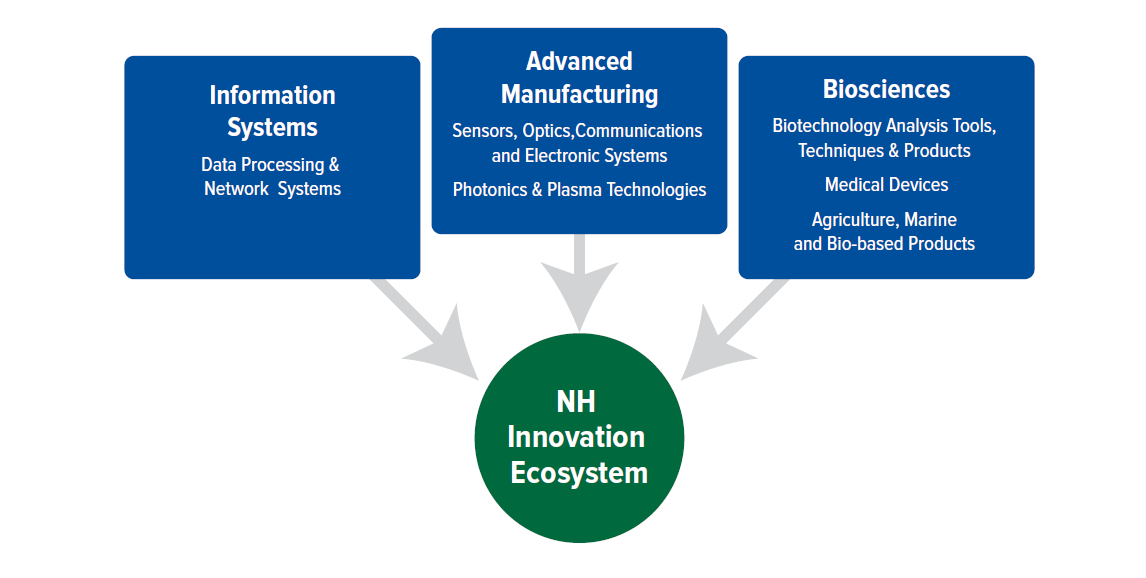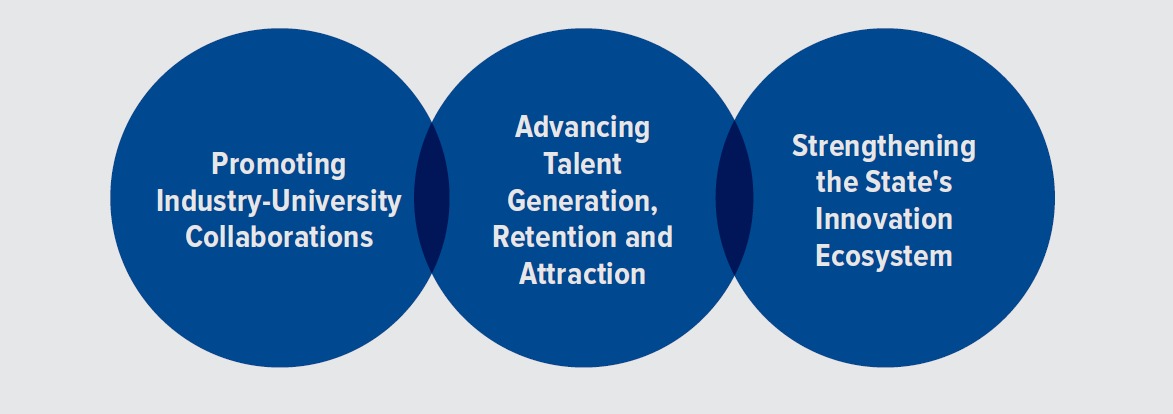The New Hampshire University Research & Industry Plan, commissioned by NH EPSCoR, is focused on accelerating innovation-led development by aligning academia’s research strengths with our state’s substantial base of existing and emerging advanced industries.
The NH University Research & Industry Plan provides insights based on data-driven evidence of our state’s innovation strengths and suggests strategies to capitalize on opportunities. It provides a roadmap for the New Hampshire innovation economy that will inform strategic decisions about how the state can best use its assets and strengths to grow high-wage jobs in the industry clusters that set New Hampshire apart.

As one of our nation’s smaller states, New Hampshire’s capacity in innovation is often overlooked. But New Hampshire has many of the right ingredients to succeed, including the presence of advanced industries, a significant number of inventors and skilled workers, and a portfolio of university research and development assets that can align with industry needs.
New Hampshire stands as an innovation-intensive state:
- 20% higher level of university research than the nation adjusted for size of economy
- >200% higher level of patent activity than the nation adjusted for size of economy
- 3% higher in share of advanced industry employment than the nation
However, warning signs suggest that our state is not keeping pace across many measures of innovation activity, including slower growth in advanced industries and higher paying middle-skilled and high-skilled jobs.

With the support of Governor Maggie Hassan, NH EPSCoR developed this report. NH EPSCoR’s Statewide Committee provided guidance, and national consultants TEConomy Partners and Keen Point Consulting conducted an independent, data-driven assessment combined with broad stakeholder engagement from private industry, the public sector, and higher education. A total of 77 interviews and three industry focus groups were conducted to ensure broad-based input. In addition, the study’s development relied on competitive benchmarking to 17 similar states and a detailed analysis of NH patent activity.
A common thread across the strategic actions in the plan is the need for public-private partnerships. Government, industry, colleges and universities, and non-profits have a part to play in this strategy, but success will be dependent upon the active participation of these sectors’ top-level leadership in setting the tone and keeping stakeholders focused on implementing these actions.
Putting the Plan into Action

The analysis identified three broad strategic priorities to be addressed, which overlap and depend on each other: 1) promote industry-university collaborations with a focus on industry-facing research and growth opportunities, 2) strengthen New Hampshire’s innovation ecosystem to spur increased commercialization, entrepreneurial development and place-making, and 3) advance talent generation, retention and attraction.
New Hampshire already has activities underway in each of these areas, but there is more to be done. The specific actions set out in this plan are focused on leveraging the activities already in place to create a more collaborative innovation ecosystem. Suggested strategic actions, best practice examples, and specific recommendations for each of the priority areas are detailed within the plan.
